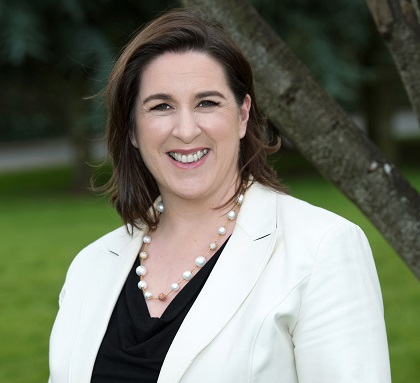
This article follows on from the key question that I put to myself and clients all the time: how are you setting yourself up to succeed? In my last article, I asked readers to take some time to think about what success is for them. Once we have clarity around what we are striving for – at work and at home/in life - we can start to break down the components of how we are setting ourselves up to succeed into bitesize chunks.
One of the things that I encourage you to think about in terms of setting yourself up to succeed in navigating your career is your Personal Brand. Do you know what it is? Do you want to know what it is, and how you go about figuring it out? And why would you even bother knowing what it is?
In all of the research and writings around women in business and gender diversity, the theme of confidence and women needing to put themselves forward to raise their own profile comes up again and again. Understanding your Personal Brand is a nice feed into taking ownership of your career and actively navigating your career forward. It’s about consciously putting the best version of yourself forward.
So what is a Personal Brand?
Your personal brand is the essence of you. It is your authentic self. We all have a personal brand, whether we know what it is or not. As Jeff Bezos of Amazon said, “Your personal brand is what people say about after you leave the room”.
What are you known for? What is your reputation (in the positive sense of the word!)? It’s not just about what you do but how you do it and how you engage with others. So often we focus on what we need to do better, and areas for development, but it’s so important to focus on our strengths and make sure that we are putting them to work for us.
How do I know what my brand is?
There are two simple steps to figuring out what your own personal brand is:
- Ask yourself
- Ask others
Easier said than done, I know!

The first step is easy for some and hard for many! It’s about really focusing on your strengths and the positives. When you receive positive feedback, what do people say? Do you get feedback from clients, peers, managers? Often we don’t even hear the positive feedback but will zoom in and magnify the constructive and developmental learnings.
Start to consciously focus on what you do and what you do well. Take a page and brainstorm out your skills and strengths – based on what you know about yourself and what you think other people’s perception of you is. Get into the habit of hearing the good stuff, and really let it sink in.
The second step is challenging for most people and can make you feel very vulnerable. If you are interested in really understanding your personal brand, what impact you have on other people and what you are known for, it is important to ask them.
Think of five or six people whom you trust and whose opinion you value. Ask them, via email or a simple survey, three to five questions about yourself. An obvious question is ‘What are my strengths?’ Example of less obvious questions are ‘What am I known for?’ or 'What would you like me to know about myself?’. Many clients shudder at the thoughts of doing this exercise, but for those that find the courage to do it they find it to be self-affirming and confidence-building. It all contributes to building your knowledge of yourself – which all serves in terms of driving your career forward.
Why should I spend some time on understanding exactly what my Personal Brand is?
It is definitely an affirming experience. It’s about focusing on your strengths and listening to what other people think your strengths are. Hearing what others think about you helps you to see yourself in a different light.
The information that you learn from the exercise can feed into your career in a number of ways:
-
Information that you can use in an upcoming interview.
-
Input to an upcoming performance review.
-
Knowledge to start building a case for your next promotion.
-
Self- development – we are all on a personal growth journey and, by understanding where we are now, we can decide where to go next. Once you know your current personal brand, you can decide if some of it needs tweaking – and, therefore, what actions or behaviour change you want to look at.
-
Most importantly, awareness of your best self so that you can consciously put that self forward.
I would love to hear about how you get in with thinking about your Personal Brand. In the next article, I’ll give some advice around how to use your personal brand to raise your profile.






